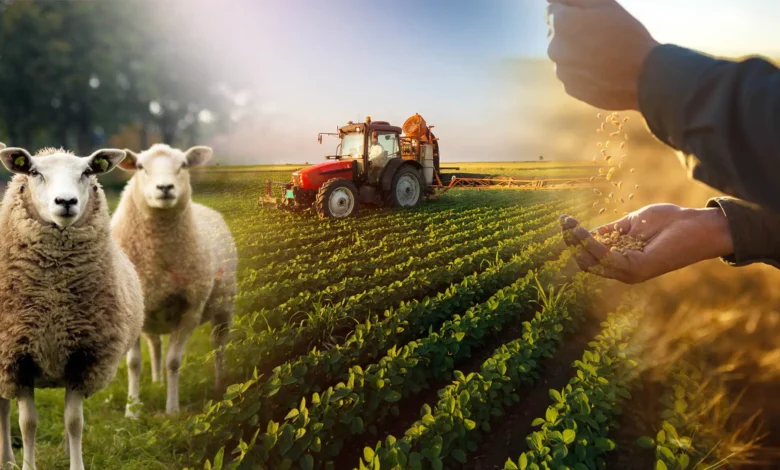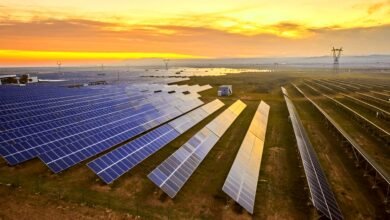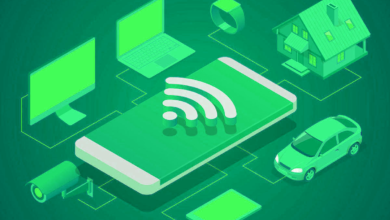The Most Important Impact of the IoT on Pakistan’s Agriculture Sector in 2023

The agriculture sector in Pakistan has always played a vital role in the country’s economy, providing food security and employment opportunities to millions of people. In recent years, the Internet of Things (IoT) has emerged as a transformative technology with the potential to revolutionize various industries, including agriculture.
In 2023, the impact of IoT on Pakistan’s agriculture sector is expected to be significant, bringing numerous benefits and opportunities for farmers and the overall agricultural ecosystem.
This article will delve into the most important impact of the Internet of Things on Pakistan’s agriculture sector in 2023. We will explore the various applications of IoT in Pakistan’s Agriculture, such as precision agriculture, smart irrigation systems, livestock monitoring, and crop monitoring.
Additionally, we will discuss the challenges and limitations of implementing IoT in Pakistani agriculture and propose solutions to overcome them.
Read more: 11 Best Practices for Remote Management of IoT
The Internet of Things refers to a network of interconnected devices and sensors that collect and exchange data, enabling them to communicate and make intelligent decisions without human intervention. In the context of agriculture, IoT applications have the potential to enhance productivity, optimize resource usage, and promote sustainable farming practices.
Understanding the Internet of Things (IoT)

The Internet of Things is built upon the concept of connecting physical objects and enabling them to exchange data through the Internet. These objects, equipped with sensors and actuators, gather real-time information and interact with the environment. In the agriculture sector, IoT devices can monitor soil moisture, temperature, humidity, crop growth, and livestock health, among other parameters.
IoT Applications in Pakistan’s Agriculture
Precision Agriculture: Revolutionizing Farming Practices
One of the most significant impacts of IoT on Pakistan’s agriculture sector is the emergence of precision agriculture. IoT devices, such as drones, satellites, and ground sensors, provide farmers with detailed insights into their fields’ conditions.
This data-driven approach allows farmers to make informed decisions regarding irrigation, fertilization, and pest control, resulting in optimized resource utilization and increased crop yields.
Smart Irrigation Systems: Optimizing Water Usage
Water scarcity is a pressing issue in Pakistan, and optimizing water usage in agriculture is crucial. IoT-based smart irrigation systems enable farmers to monitor soil moisture levels in real time and deliver the right amount of water precisely when and where it is needed. This not only conserves water but also prevents over-irrigation, reducing costs and improving crop health.
Livestock Monitoring and Management
IoT technologies enable the monitoring and management of livestock more efficiently and effectively. Sensors attached to animals can track their location, health parameters, and behavior patterns. This data helps farmers detect diseases early, ensure timely veterinary interventions, and improve overall livestock management practices.
Crop Monitoring and Yield Optimization
By leveraging IoT devices, farmers can continuously monitor their crops’ growth, detect early signs of diseases or pests, and take appropriate measures promptly. This proactive approach minimizes crop losses and maximizes yields. Additionally, IoT-based yield optimization systems help farmers identify optimal harvesting times and improve post-harvest processes, leading to better-quality produce.
Supply Chain Management and Traceability
IoT technologies facilitate seamless supply chain management in the agriculture sector. From field to fork, sensors and RFID tags can track the movement and condition of agricultural produce, ensuring transparency, minimizing spoilage, and preventing counterfeit products. Consumers can trace the origin of food items, promoting trust and accountability in the supply chain.
Challenges and Limitations of IoT in Pakistan’s Agriculture
While the Internet of Things holds tremendous potential, several challenges and limitations need to be addressed for its successful implementation in Pakistan’s agriculture sector. These include limited internet connectivity in rural areas, high costs of IoT devices, data privacy, and security concerns, and the need for farmer education and training to utilize IoT technologies effectively.
Overcoming Challenges: Solutions and Recommendations
To overcome the challenges associated with IoT adoption in Pakistani agriculture, a multi-faceted approach is required. It involves expanding internet infrastructure in rural areas, subsidizing IoT devices to make them affordable for farmers, implementing robust data security measures, and providing comprehensive training programs to enhance farmers’ digital literacy and IoT utilization skills.
IoT’s Impact on Efficiency and Productivity
The integration of IoT devices in Pakistan’s agriculture sector has the potential to significantly improve efficiency and productivity. Real-time data collection and analysis enable farmers to make data-driven decisions, reducing guesswork and optimizing resource allocation. With increased efficiency, farmers can achieve higher yields, lower costs, and ultimately enhance their profitability.
Economic and Environmental Benefits

The Internet of Things can bring about several economic and environmental benefits to the agriculture sector in Pakistan. By reducing resource wastage, such as water and fertilizers, IoT helps farmers save costs and improve their financial stability.
Furthermore, optimized farming practices driven by IoT can contribute to sustainable agriculture, reducing the environmental impact and preserving natural resources for future generations.
Promoting Sustainable Agriculture
Sustainability is a key focus for the agriculture sector in Pakistan, given the challenges of climate change and resource constraints. IoT’s impact on sustainable agriculture is significant, as it enables precise and targeted resource management.
By adopting IoT-based technologies, farmers can reduce the use of agrochemicals, minimize water wastage, and mitigate the negative environmental impact of conventional farming practices.
Empowering Farmers and Rural Communities
The Internet of Things has the potential to empower farmers and uplift rural communities in Pakistan. Access to real-time information and market data can help farmers make informed decisions regarding crop selection, pricing, and market trends. Furthermore, IoT-based farming techniques can enhance agricultural livelihoods, attract young talent to the sector, and bridge the urban-rural divide.
IoT’s Role in Food Security and Food Safety
Ensuring food security and safety is a critical challenge for Pakistan’s agriculture sector. By leveraging IoT technologies, farmers can improve food traceability, quality control, and early disease detection. This enhances food safety standards and builds consumer trust. Additionally, IoT-based agricultural practices contribute to increased food production, reducing the risk of food shortages and enhancing overall food security.
Read more: What is the Internet of Things (IoT)?
Conclusion
The Internet of Things has emerged as a game-changer for Pakistan’s agriculture sector in 2023. Through precision Pakistan’s Agriculture, smart irrigation systems, livestock monitoring, and supply chain management, IoT technologies are revolutionizing farming practices and bringing numerous benefits. By addressing the challenges and embracing the potential of IoT, Pakistan can achieve sustainable agricultural growth, enhance food security, and uplift rural communities.
FAQs
How does IoT benefit small-scale farmers in Pakistan?
IoT benefits small-scale farmers by providing real-time data on weather conditions, crop health, and market prices. This enables them to make informed decisions, optimize resource usage, and improve their profitability.
Is IoT affordable for farmers in Pakistan?
The affordability of IoT devices is a challenge, but with government subsidies and increased market competition, the cost is expected to decrease over time, making it more accessible for farmers.
Can IoT technologies withstand the challenging conditions of rural areas in Pakistan?
IoT devices designed for Pakistan’s Agriculture are built to withstand harsh conditions. However, improving internet connectivity in rural areas is crucial to ensure seamless data transmission and device communication.
How does IoT ensure data privacy and security in Pakistan’s Agriculture sector?
Implementing robust data security measures, such as encryption and access control, is vital to protect farmers’ data. Additionally, data storage and processing should adhere to strict privacy regulations.
How can IoT contribute to sustainable farming practices in Pakistan?
By enabling precise resource management, minimizing waste, and reducing the use of agrochemicals, IoT promotes sustainable farming practices, leading to improved environmental stewardship and resource conservation.











